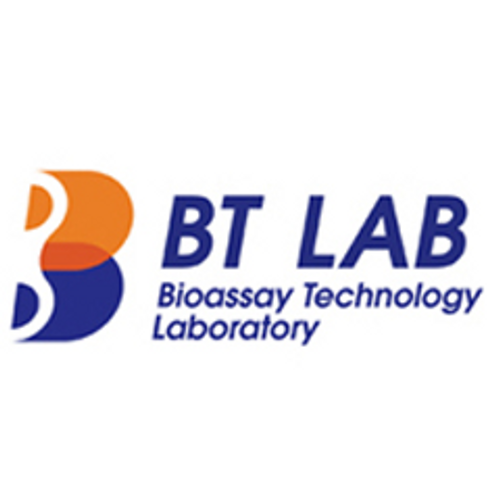Product Description
Human Serine/threonine-protein kinase PINK1, mitochondrial (PINK1) ELISA Kit | AE27386HU | Abebio
Species Reactivity: Human (Homo sapiens)
Abbreviation: PINK1
Alternative Name: BRPK; FLJ27236; PARK6; protein kinase BRPK|serine/threonine-protein kinase PINK1
Application: ELISA
Range: 3.125-200 ng/mL
Sensitivity: 1.3 ng/mL
Intra-Assay: ≤5.4%
Inter-Assay: ≤9.5%
Recovery: 0, 89
Sample Type: Serum, Plasma, Other biological fluids
Detection Method: Sandwich
Analysis Method : Quantitive
Test Principale: This assay employs a two-site sandwich ELISA to quantitate PINK1 in samples. An antibody specific for PINK1 has been pre-coated onto a microplate. Standards and samples are pipetted into the wells and anyPINK1 present is bound by the immobilized antibody. After removing any unbound substances, a biotin-conjugated antibody specific for PINK1 is added to the wells. After washing, Streptavidin conjugated Horseradish Peroxidase (HRP) is added to the wells. Following a wash to remove any unbound avidin-enzyme reagent, a substrate solution is added to the wells and color develops in proportion to the amount of PINK1 bound in the initial step. The color development is stopped and the intensity of the color is measured.
Product Overview: PINK1 encodes a serine/threonine protein kinase that localizes to mitochondria. It is thought to protect cells from stress-induced mitochondrial dysfunction. Mutations in this gene cause one form of autosomal recessive early-onset Parkinson disease. The protein shares 43% and 31% sequence identity with Drosophila CG4523 and C. elegans EEED8.9, respectively. Northern blot analysis detected ubiquitous expression of a 2.7-kb transcript, with highest expression in heart, skeletal muscle, and testis. RT-PCR analysis showed that expression of PINK1 was decreased in ovarian tumors compared with corresponding normal tissues.
Stability: The stability of ELISA kit is determined by the loss rate of activity. The loss rate of this kit is less than 5% within the expiration date under appropriate storage condition. The loss rate was determined by accelerated thermal degradation test. Keep the kit at 37°C for 4 and 7 days, and compare O.D.values of the kit kept at 37°C with that of at recommended temperature. (referring from China Biological Products Standard, which was calculated by the Arrhenius equation. For ELISA kit, 4 days storage at 37°C can be considered as 6 months at 2 - 8°C, which means 7 days at 37°C equaling 12 months at 2 - 8°C) .
 Euro
Euro
 USD
USD
 British Pound
British Pound
 NULL
NULL












